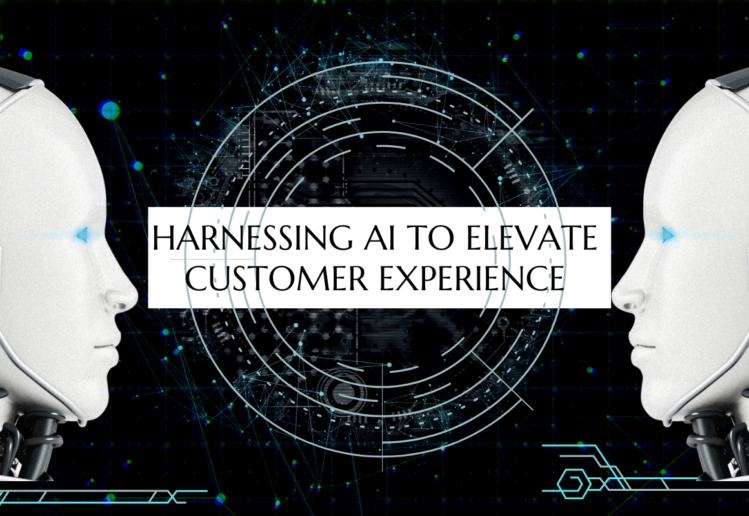In the ever-evolving landscape of customer experience (CX), artificial intelligence (AI) has emerged as a transformative force. Yet, amidst the buzz and excitement, the core challenge remains: how can AI deliver real value to create the ultimate customer experience? This involves not only leveraging AI’s capabilities to enhance interactions but also ensuring these advancements translate into meaningful and beneficial experiences for customers.
Understanding the Customer Experience Landscape
Customer experience encompasses every interaction a customer has with a brand, from initial awareness and discovery through to purchase and post-purchase support. In today’s digital age, customers expect seamless, personalized, and efficient interactions across all touchpoints. They desire services that anticipate their needs, resolve their issues swiftly, and add value to their lives.
The Role of AI in Customer Experience
AI has the potential to revolutionize CX by offering unprecedented levels of personalization, efficiency, and insight. Key AI-driven technologies that impact CX include machine learning, natural language processing (NLP), chatbots, predictive analytics, and sentiment analysis. These technologies enable businesses to understand their customers better, anticipate their needs, and deliver tailored experiences.
Personalization at Scale
One of the most significant ways AI adds value to CX is through personalization. AI can analyze vast amounts of data to understand individual customer preferences, behaviors, and purchase histories. With these insights, businesses can create highly personalized experiences that resonate with each customer.
For example, AI algorithms can recommend products based on a customer’s browsing history, previous purchases, and even current trends. Netflix and Amazon are masters at this, using AI to provide personalized recommendations that keep users engaged and encourage repeat purchases. This level of personalization not only enhances the customer experience but also drives loyalty and increases revenue.
Enhancing Customer Service with AI
AI-powered chatbots and virtual assistants are transforming customer service by providing instant, 24/7 support. These AI systems can handle a wide range of queries, from simple FAQs to complex troubleshooting, freeing up human agents to focus on more intricate issues.
Chatbots like those used by banks, airlines, and e-commerce companies can provide real-time assistance, reducing wait times and improving customer satisfaction. Moreover, AI systems learn from every interaction, continually improving their ability to assist customers accurately and efficiently.
Predictive Analytics and Proactive Support
Predictive analytics, powered by AI, allows businesses to anticipate customer needs and address issues before they escalate. By analyzing historical data and identifying patterns, AI can predict future behaviors and trends. For instance, if a customer frequently contacts support for the same issue, predictive analytics can trigger a proactive outreach to resolve the problem, enhancing the customer’s experience and preventing frustration.
In the retail sector, predictive analytics can forecast demand for products, ensuring that popular items are always in stock, and reducing the likelihood of customer disappointment due to out-of-stock situations. In healthcare, AI can predict patient needs and provide timely reminders for appointments or medication refills, significantly improving patient care and experience.
Sentiment Analysis for Understanding Customer Emotions
Understanding customer emotions is critical for delivering exceptional CX. Sentiment analysis, a subset of NLP, allows businesses to gauge customer sentiment by analyzing text data from reviews, social media, and customer feedback.
AI-driven sentiment analysis can help businesses identify areas where they excel and where they need improvement. For example, if sentiment analysis reveals that customers are frustrated with long wait times for support, the business can take corrective action, such as hiring more staff or improving self-service options.
Seamless Omnichannel Experiences
Today’s customers interact with brands across multiple channels, including websites, social media, mobile apps, and in-store visits. AI plays a crucial role in creating seamless omnichannel experiences by ensuring consistency and continuity across all touchpoints.
For example, AI can track a customer’s journey across different channels and provide personalized recommendations or support based on their interactions. If a customer abandons their shopping cart on a website, AI can send a personalized email reminder or a mobile app notification with an incentive to complete the purchase. This integrated approach enhances convenience and satisfaction, driving better CX.
Ethical Considerations and Transparency
While AI offers immense potential for improving CX, it is essential to address ethical considerations and ensure transparency. Customers are increasingly concerned about data privacy and how their information is used. Businesses must be transparent about their data practices and ensure that AI systems are designed to protect customer privacy.
Moreover, AI systems should be free from biases that can negatively impact customer experience. This involves continuous monitoring and refinement of AI algorithms to ensure fairness and accuracy. By addressing these ethical considerations, businesses can build trust and confidence with their customers.
Real-World Examples of AI Enhancing Customer Experience
Several companies have successfully harnessed AI to deliver exceptional customer experiences:
- Spotify: Spotify uses AI to create personalized playlists for its users. By analyzing listening habits, preferences, and even the time of day, Spotify curates playlists that keep users engaged and satisfied, enhancing their overall experience.
- Sephora: Sephora’s AI-powered virtual assistant, Sephora Virtual Artist, allows customers to try on makeup virtually. By leveraging augmented reality and AI, Sephora provides a unique, interactive, and personalized shopping experience that delights customers.
- Domino’s Pizza: Domino’s uses AI to streamline the ordering process with its voice-activated assistant, Dom. Customers can place orders through various channels, including smart speakers, and Dom ensures a consistent and efficient experience.
Measuring the Impact of AI on Customer Experience
To ensure that AI delivers real value, businesses must continuously measure its impact on CX. Key performance indicators (KPIs) such as customer satisfaction scores, Net Promoter Score (NPS), and customer retention rates provide valuable insights into the effectiveness of AI-driven initiatives.
Customer feedback is another crucial metric. By soliciting and analyzing feedback, businesses can understand how AI solutions are perceived and make necessary adjustments to improve the experience. Additionally, monitoring the performance of AI systems helps identify areas for enhancement and ensures they continue to meet customer expectations.
The Future of AI in Customer Experience
The future of AI in CX is promising, with advancements in technology paving the way for even more sophisticated and impactful applications. Here are some emerging trends:
- Hyper-Personalization: AI will enable even deeper levels of personalization, taking into account not just past behaviors but also real-time context, emotions, and preferences.
- Emotion AI: This technology will allow AI systems to recognize and respond to human emotions, creating more empathetic and human-like interactions.
- Voice Assistants and Conversational AI: The rise of voice assistants and conversational AI will continue to transform customer interactions, making them more natural and intuitive.
- AI-Driven Insights: AI will increasingly be used to generate actionable insights from vast datasets, enabling businesses to make data-driven decisions that enhance CX.
Conclusion
AI has the potential to create the ultimate customer experience by delivering real value through personalization, efficiency, and insightful interactions. However, businesses must navigate ethical considerations and continuously measure the impact of AI initiatives to ensure they meet customer expectations. By leveraging AI responsibly and strategically, businesses can transform CX, drive customer loyalty, and achieve long-term success.













